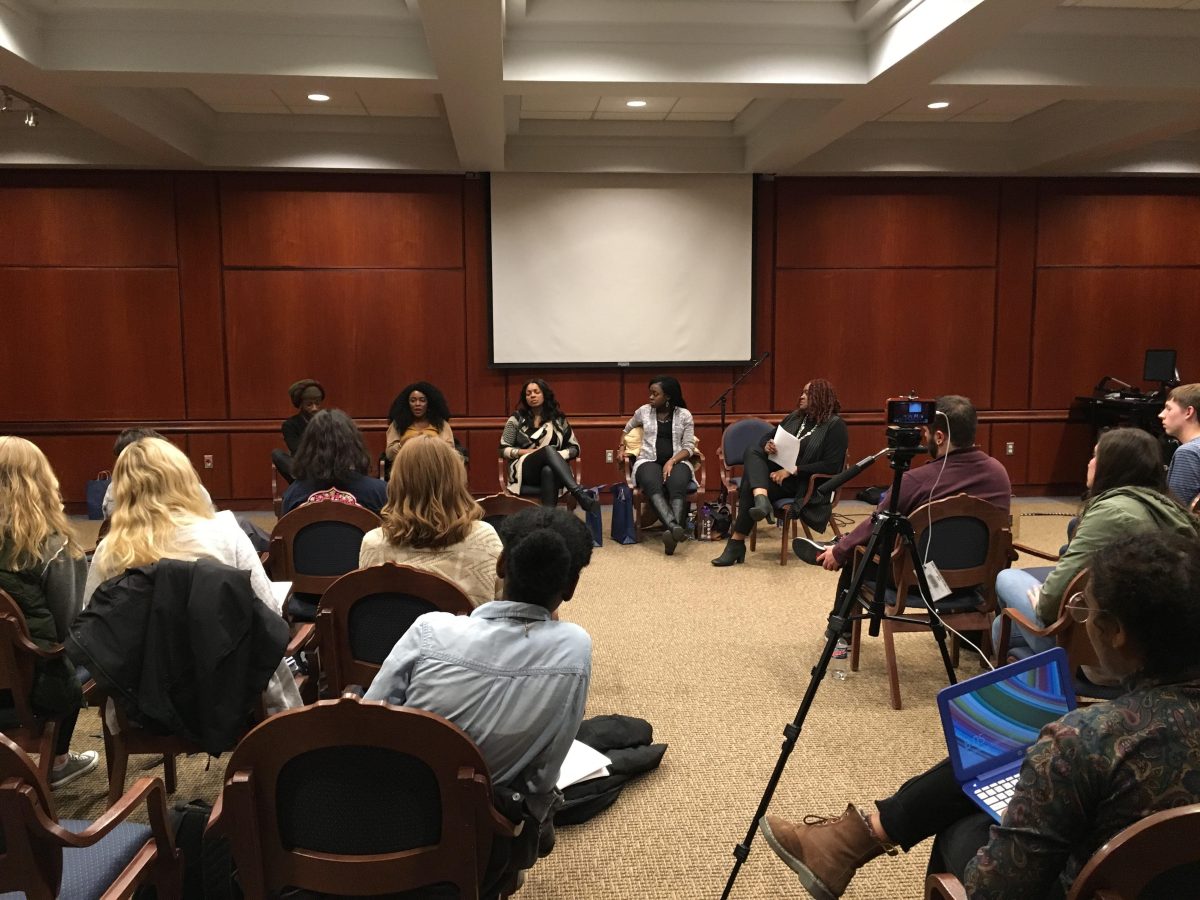A panel held at Bethel celebrated the histories of black individuals and what it means to be a person of color in the workplace.
By Annalise Beeson
Roslyn Harmon, then a newly graduated teacher, found herself to be the only black person and woman seated at the mahogany table during a job interview at a private K-12 school.
“I was raised in Rochester, Minnesota and for years I resented my mother for that, but in the moment I was like, “Thank you!” I knew the lingo, I knew what they wanted to hear and because of that I got the job,” Harmon said.
Harmon, now a pastor, educator and mental health practitioner, was joined by three other black professionals on the Blackness in the Workplace Panel held at Bethel University on Feb. 15, in celebration of Black History Month. Panelists included a poet and spoken word educator, a pediatrician and an organizer of MN Neighborhoods Organizing for Change (NOC). The panelists all spoke of their experiences of being black and the challenges they have maneuvered working in several different environments.
For Harmon, not only was she the only black person in the room for her interview, but also the only one working at the school once she got hired. She taught kindergarten through second grade art and was later asked to teach black history in the same school. Eventually she was featured in a photo on the cover of the school’s brochure for the upcoming year, next to two of her white students, without her permission.
“I looked like a student in the picture and I felt like it was them reaching out to students of color since there were none currently at the school. That was the pivotal moment when I thought maybe this isn’t where I needed to be,” Harmon said. She found a new job shortly afterward.
Another panelist, Eta Barclay, was born in Nigeria and moved to Minnesota when she was 16 to become a doctor. She spoke of the challenges she has encountered of discovering her identity. She is African, but not African American, which caused her to not label herself as “black” until she came to the United States.
Currently, Barclay works at a hospital in downtown Minneapolis where the majority of the patients are minorities but most of her coworkers are white. Because of this, many of the patients will look to Barclay to relate to them and trust her opinion over the other doctors’ just because she is black.
“I just showed up wanting to be a doctor, not realizing how much depth and baggage come with just being black. There is an identity I put on myself which is different than the identity others put on me,” Barclay said. “I am still learning how to identify myself. It gets messy very quickly.”
Several Bethel students of a variety of majors and ethnicities attended the event and asked questions for the Q&A portion of the event. The panelists spoke about what motivated them to choose their careers, the mentors who have inspired them, and times of hardship they’ve experienced by being minorities in their specific workplaces.
“I liked how this panel made me realize the importance of mentorship and having solid leaders in your life,” said Megan Tunell, a sophomore social work major. “It made me think of how I can make others’ lives better.”
Panelist Keno Evol, works as a poet and spoken word educator in schools throughout Minnesota. He was adopted and grew up in a primarily white community and he now works to create a new type of workplace free of racism, sexism and any other bias currently in society.
“Freedom is having no fear. If you’re afraid of walking home in your community or afraid of talking to a police officer, are you as free as you could be in that particular situation? What silences aren’t supporting you?” said Evol. “Work is and will always continue to be bigger than our jobs”.


















